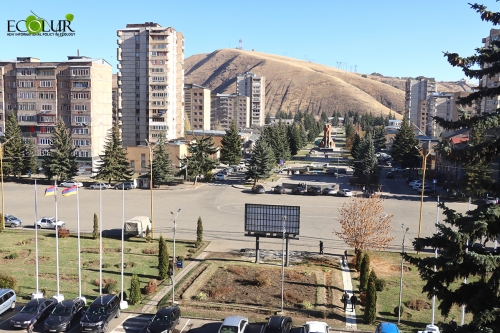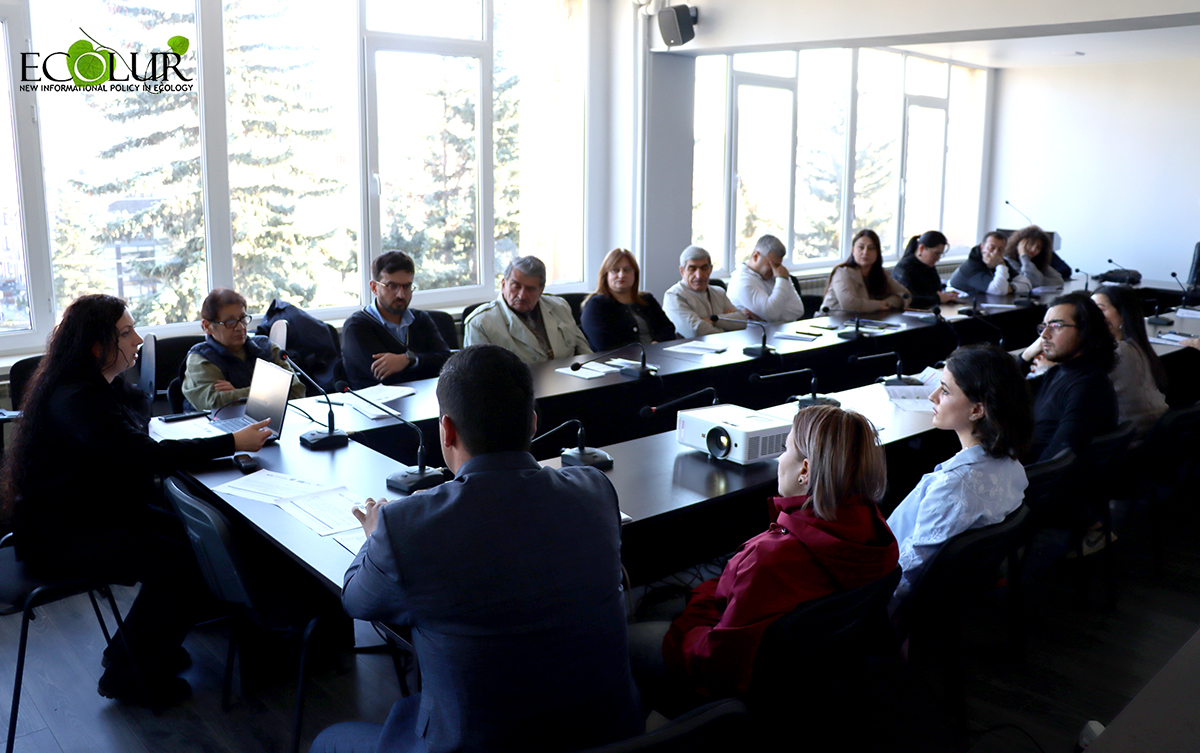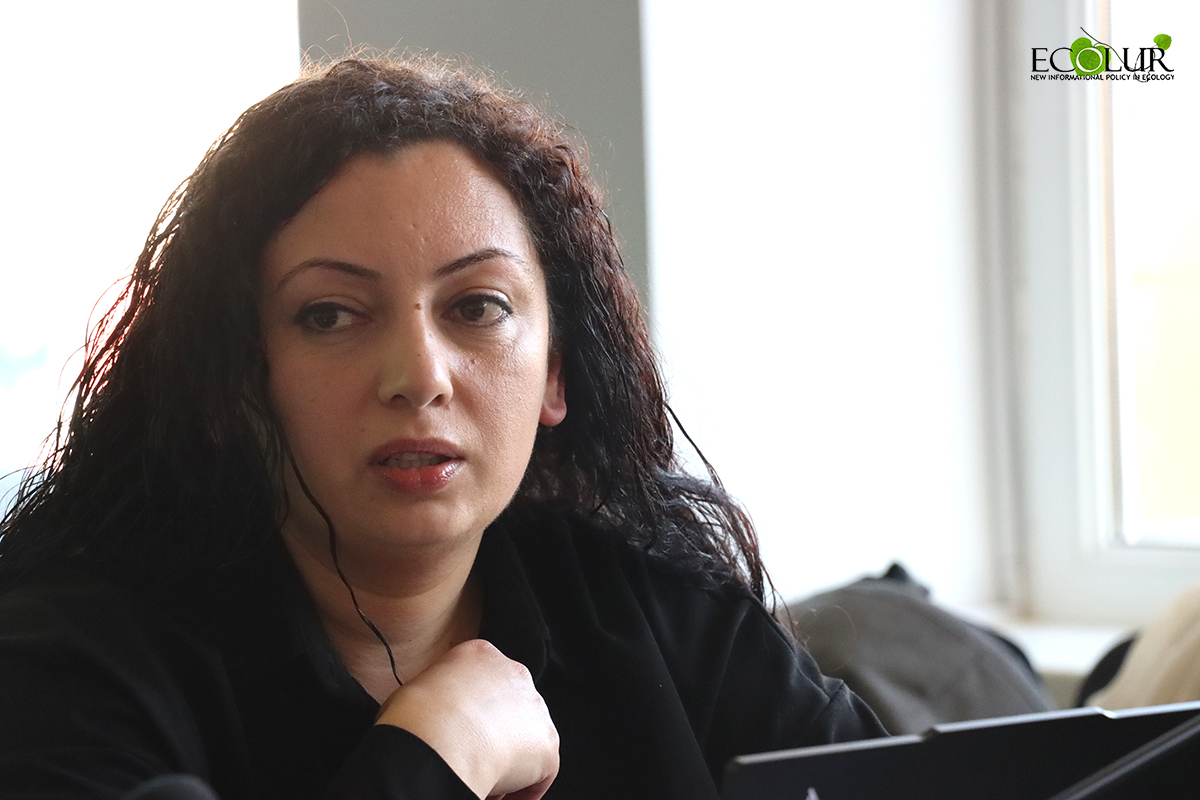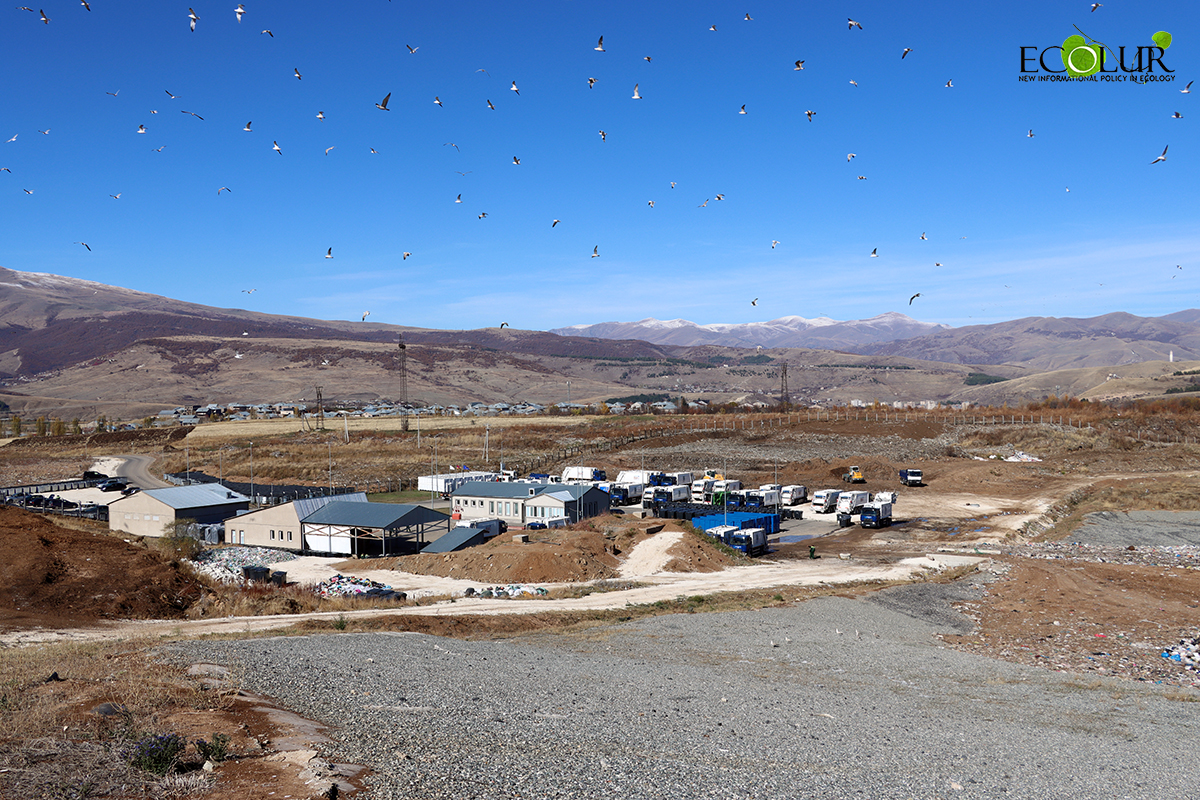

On October 31, 2025, an awareness discussion dedicated to the introduction of the Extended Producer Responsibility (EPR) system was held at Hrazdan Municipality in Kotayk Region. The discussion was initiated by “EcoLur” Informational NGO with the support of Hrazdan Municipality.

Participants received informational materials on the EPR system and waste sorting.
Victoria Burnazian, Deputy President of “EcoLur” Informational NGO, presented the EPR implementation framework in Armenia.

Victoria Burnazyan
The EPR system makes producers or importers of specific products responsible for the separate collection, recycling, and neutralization of special waste generated from the consumption of those products. Producers and importers will delegate this function to a Producer Responsibility Organization (PRO) established by them.
Currently, Armenian settlements generate an average of 1,887 tons of municipal solid waste per day or 688,937 tons annually. Nearly half of this waste is recyclable, yet only about 5 percent is actually recycled. A significant share-around 20 percent-is packaging waste, which is mostly sent to existing landfills. In 2020, 297 dumpsites were mapped, all of which continuously exert negative impacts on the environment and human health.

New sanitary landfill in Hrazdan
Victoria Burnazian noted that the Ministry of Environment has developed a draft law on “Extended Producer Responsibility.”
As a result of successful implementation of the EPR system:
- the volume of waste generated and transported to landfills will decrease
- institutional and financial resources for the management and environmentally safe treatment of special waste will be ensured
- circular economy will be promoted
The awareness meeting was organized within “Informing and Supporting Introduction of Extended Producer Responsibility System in Armenia for Healthy Environment” subproject implemented by “EcoLur” Informational NGO under “Waste Management Policy in Armenia” programme of the AUA Acopian Center for the Environment, funded by the Government of Sweden.

This material was produced within the framework of “Waste Policy in Armenia” (WPA) project implemented by the AUA Acopian Center for the Environment, with financial support from Sweden and technical support from AUA.
The views, conclusions, and opinions expressed herein are those of the author(s) and do not necessarily reflect the positions of the project, the American University of Armenia, or the Government of Sweden.
November 24, 2025 at 16:32
